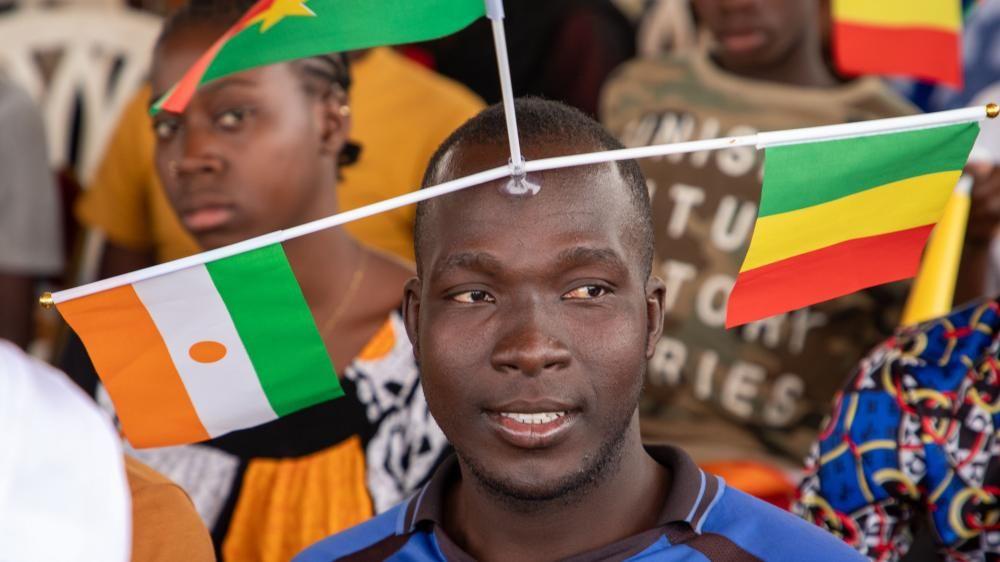In a significant turn of events, three West African nations—Burkina Faso, Mali, and Niger, presently ruled by military leaders—have announced the implementation of visa-free travel and residency rights for their citizens within the Economic Community of West African States (ECOWAS) bloc. This decision is seen as an initiative aimed at fostering camaraderie and reinforcing the historical ties shared by African nations. The three countries have expressed their intention to withdraw from ECOWAS by January, following their disobedience to the bloc’s demands for a return to democratic governance. Despite ECOWAS leadership offering a six-month grace period for reconsideration, the military juntas have displayed a steadfast commitment to their decision, citing it as “irreversible.” This withdrawal poses a risk to regional unity and could undermine economic and security collaborations in an already volatile area.
ECOWAS leaders convened a meeting in Nigeria, where emerging concerns regarding the trio’s departure were addressed. The bloc’s commission president, Omar Touray, conveyed disappointment over the impending exit, while commending ongoing mediation efforts to resolve the standoff. During the period between January 29 and July 29, 2025, negotiations will be led by the presidents of Senegal and Togo, seeking a potential reconciliation. Nevertheless, the juntas have remained unyielding, reinforcing their stance through a joint ministerial statement from Niamey that deemed their decision final. This calculated withdrawal from ECOWAS marks a pivotal moment in the bloc’s history, as the organization will witness its first disbandment, in a departure that not only affects membership but also significantly reduces its population and geographical expanse.
The potential ramifications of this withdrawal are profound, as Burkina Faso, Mali, and Niger accounted for a combined populace of 76 million individuals—over 17% of ECOWAS’s total of 446 million. The current predicament shines a light on the intricate balance of power in the region, as the trio has unveiled their own bloc, dubbed the Alliance of Sahel States. Under the leadership of Assimi Goïta, the military ruler of Mali, the new alliance aims to uphold the rights of ECOWAS citizens to travel and reside in the territories of the Sahel states, suggesting an intent to maintain amicable relations with members of the ECOWAS bloc despite their departure. This shift signifies both a redefining of regional alliances and a potential fracturing of established partnerships that have endured since ECOWAS’s inception in 1975.
Relations between ECOWAS and the Sahel states have become increasingly fraught following a succession of military coups that have altered the political landscape in the region. The coup in Mali in 2020, followed by Burkina Faso in early 2022 and, most recently, Niger in July 2023, prompted ECOWAS to take decisive actions, including suspending membership and urging a return to civilian governance. However, the military governments have responded with resolute defiance, pivoting away from ECOWAS’s Western affiliations and forging new alliances with other global powers, notably Russia. The juntas assert that the bloc harbors connections with Western influences that do not align with their envisioned governance and security frameworks. This strategic realignment reflects a broader trend within the region, where the military regimes are seeking to strengthen their positions against both domestic insurgencies and external pressures.
Following the January notification of their planned withdrawal from ECOWAS, the military leaders have expressed that their decision is a direct response to the perceived disenfranchisement from the bloc. The geopolitical dynamics of the region continue to shift as these nations seek to create a new, cohesive alliance under their newly formed entity. By advocating for rights of movement and residency within their new bloc, the Sahel states not only seek legitimacy but also express their commitment to regional collaboration on their terms. This initiative may serve as a counter-narrative to ECOWAS’s influence, presenting an alternative path for collaboration that aligns more closely with their strategic interests.
As the ECOWAS Commission in Abuja navigates the complexities of maintaining relations with these three nations, it is clear that the landscape of West African geopolitics is evolving. Moving forward, careful diplomacy will be essential in addressing the growing divide between the ECOWAS bloc and the Sahel states. While there are efforts underway to mediate and potentially reintegrate, the likelihood of successful resolution remains uncertain, particularly in light of the entrenched positions of the military juntas. The future of collaboration within West Africa will hinge on these negotiations and the broader regional response to the political transformations occurring within the Sahel countries, setting a precedent for similar dynamics in neighboring states.

